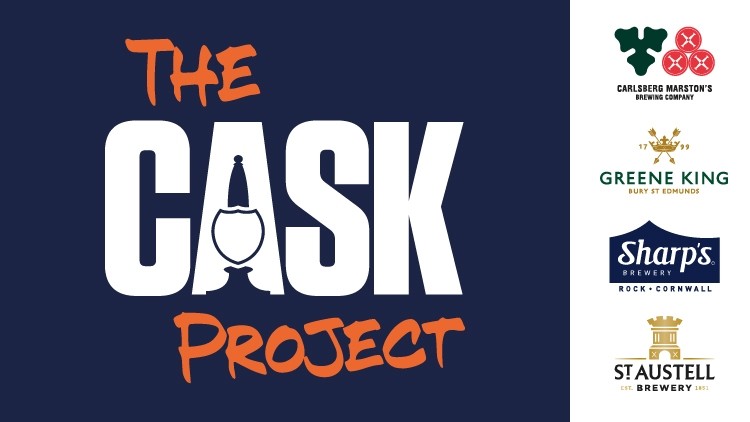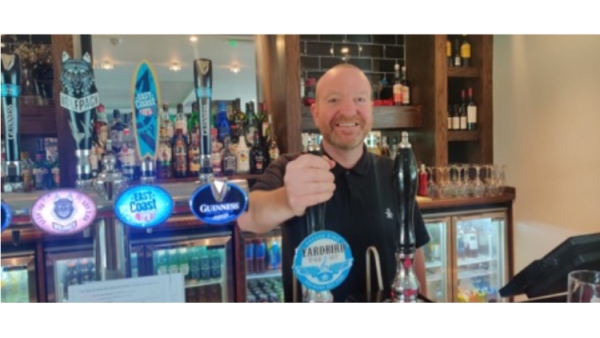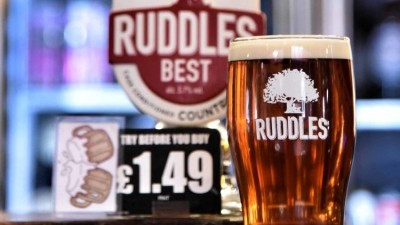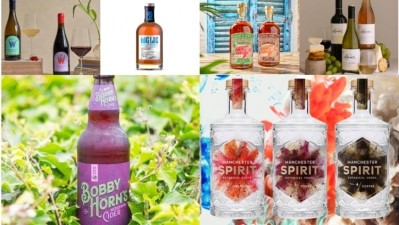the cask project
Cask has to be perfect to attract younger drinkers

The Cask Project
The Morning Advertiser launched The Cask Project in a bid to re-energise the category and reinstall it in pride of place on the bar of pubs throughout the country.
Cask beer is in long-time decline and, having joined forces with some of the UK’s leading cask beer suppliers – Carlsberg Marston’s Brewing Company, Greene King, Sharp’s Brewery and St Austell – we want to reinvigorate attitudes within the trade to a product which should be rightly cherished by operators.
Cask beer is a unique product that can only be replicated successfully within pubs but the perception of cask, particularly among younger drinkers, is that it is made and loved only by an ageing male population.
We want to create a real buzz about cask to get pub owners, operators, general managers, bartenders and all pub staff on board and debunk the myths surrounding the drink and educate them on how to make cask work for their business. And by doing this, we can pass on that knowledge, care and skill into cask beer at the bar for customers to get excited about too.
Click here to read more stories in The Cask Project.
I’ve worked at Greene King for 15 years in a variety of different roles. Most recently, managing the customer relationships across both our own Greene King estate as well as our external partners such as Stonegate, JD Wetherspoon and Mitchells & Butlers.
Having been around the on-trade for most of my life, I’m really passionate about cask ale and the fantastic benefits it brings to the on-trade. But I’m also well aware of the challenges our customers face in ensuring the quality is perfect and consistent.
For the past few years, it’s been a really challenging time for cask and notably the pandemic has had a huge impact. Pubs have struggled to maintain the throughput that guarantees the quality, in part attributed to declines in footfall and a slow recovery, hindered by lockdowns and restrictions. When pubs reopened, we saw a reduced availability of cask which, in turn, led to guests choosing lagers and keg products predominantly over cask.
Another challenge for cask ale in recent times is that, as a category, it has struggled recently to recruit younger drinkers and when breweries focus only on their own brands, they are failing to address the wider category challenge.
To highlight the fantastic credentials of great British cask. It is important we encourage the next generation of drinkers to try a pint, whichever brewery it comes from. Younger drinkers aren’t choosing cask and if we can’t guarantee there’s a 99.9% chance of getting a perfect pint every time then we’re not doing ourselves any favours. It’s time to stop looking inwardly at our own portfolio of brands it’s about working together to grow the category and keep cask alive and well.
Championing the real ale agenda
As leaders in cask ale from a both a brewing perspective and as an operator within our leased & tenanted and retail estate, we want to be seen as category leaders in championing the real ale agenda, helping our customers to unlock the true potential of the commercial benefits it brings to the on-trade and supporting all of our stockists, wherever they might be, to serve consistent, perfect-quality cask beer.
There are many ways in which Greene King is investing in this area and one example is a newly created role within our quality department that I will be stepping into to lead and champion the role of cask within the on-trade. Cask is a great British pub tradition, it’s unique in its positioning as a fresh, live product that when looked after properly and given the attention it deserves then, in my opinion, it really is the most premium experience on the bar. However, we know it requires focus and support operationally to ensure product consistency and a perfectly served pint every time.
We have a really comprehensive technical support set-up across Greene King and the team look after any dispense issues, ensuring all of the cellars are kept running 24/7. We pride ourselves on offering a great service and If there are any issues with the equipment, our team are out to fix it straight away and to get things up and running as soon as possible. In addition to technical support, we run full cellar management courses for all of our new starters to give them the knowledge and confidence to be the very best they can be within the industry.
My role moving forward is to build on that quality and service framework we have. This is about championing every day so in addition to showing licensees the basics of how to condition cask beer and serve it perfectly, it’s also about advising on the best range of ales depending on outlet style, regionality, the most relevant dispense solutions for every stockist, customised to their needs so it isn’t a case of one-size-fits-all, it’s a real bespoke service. Guiding our customers on the optimum dispense solutions to ensure maximum sales and minimum wastage across their cask range, we can also demonstrate the importance of building a great reputation for both the cask brand, and the pub in getting it right every time.
I think there’s a perception that cask is a really difficult product to keep but that isn’t the case. There can be few key things that can lead to less-than-perfect quality pints being served over the bar but if you get the basics right, it really isn’t that hard at all.
Time on the bar
The number one challenge is that beers can be on sale for too long. Typically, every barrel of cask you tap should be sold within three to four days and if you’re not managing to achieve that level of turnover and the beer remains on the bar, the more negative impact it will have on the flavour. This means it will be less fresh, the flavours are less pronounced and then the longer you go beyond four days, the more you can start to experience flavour taints such as an acetic, vinegary taste.
Another key area where licensees can make a mistake is ranging too many handpulls on the bar. If your pub is selling, on average, 50 pints of cask beer a day, you should only focus on having two hand pulls on the bar. But sometimes the temptation is to offer a broader range of cask beer. But in doing that, you’re spreading your 50 pints of ale throughput a day over three, four, five beers, which means they’re all going to be staying on the bar a little too long to guarantee perfect quality for every single pint.
In addition to this, pubs need a clean, tidy cellar. This means regularly cleaning your cask taps and all the cellar equipment. It’s the same rules that apply for keg beer but it’s even more important with cask because it’s a live product and containers aren’t sealed in the same way that kegs are so if there are any imperfections in the cellar, it will quickly impact on the flavour of the beer.
Testing the beer is also a fundamental part of the routine. When we test the beer, we want a good aroma. That means we get a fresh smell of the hops and fresh malt, and clarity of beer visually so it should ‘drop right’, meaning after the pint has settled, it should be clear and fresh, not misty or cloudy. The temperature should be between 11°C and 13°C and it should taste fresh and clean when it hits the palate.
At Greene King, we ensure all licensees within our managed business and our leased and tenanted business receive full cellar training at our training centre in Bury St Edmunds as part of their induction. We also run cellar training courses for our independent free-trade customers around the country. In addition, we provide cellar support kits for publicans to use in their cellar. These handy kits include boards to record when a cask ale has been racked, tapped, how long it’s been on sale. So all the back-of-house staff are on the same page when it comes to looking after the beer.
We also host an online cellar support troubleshooting portal called Beer Genius. If there any challenges in the cellar, you can go online 24/7 meaning you can fix any issues really quickly and minimise the operational impact.








